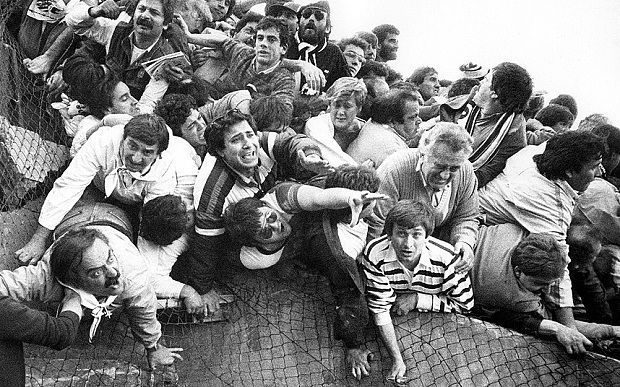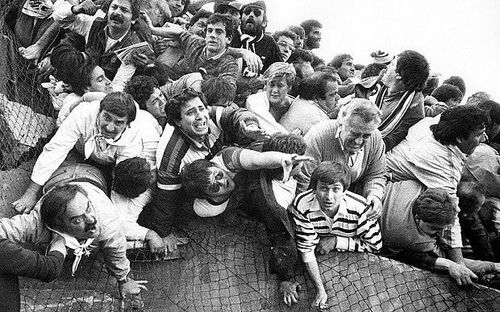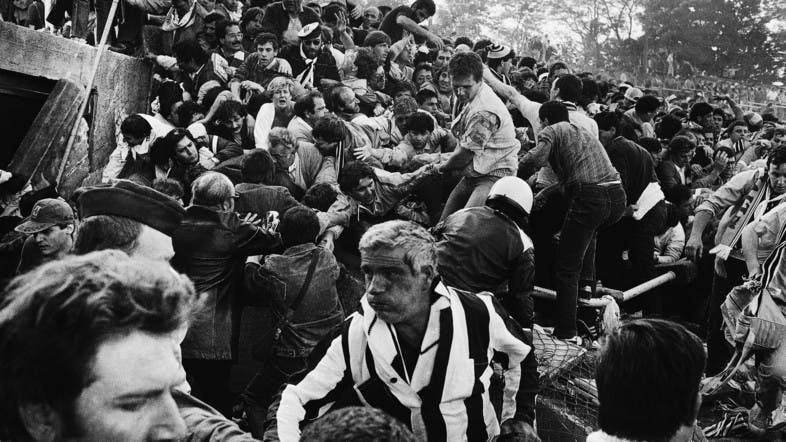
3 reasons how Heysel 1985 was different from Manchester City's current ban | UEFA Champions League 2019-20

On February 14, 2020, Manchester City was banned from participating in UEFA Champions League for the ensuing two years, following a massive schism of the Financial Fair Play (FFP) rules of the apex body of football in Europe. The ban is supposed come into action next year and will end in 2022. However, like always, a few football fans have twisted this incident to rekindle the darkest days in English football which led to the ban of all English clubs from European Championships for an indefinite period, following the Heysel Stadium disaster of May 1985 in Brussels. After serving a five-year ban, the English clubs were allowed to participate in Europe. However, Liverpool was asked to serve the ban for three more years which was later reduced to one.
Let's try and declassify the differences between these two bans which will echo for years to come in the canon of English football.
In the first place, we will have to comprehend the two bans which were imposed on the English clubs and their respective reasons.
The Heysel Stadium disaster was an act of extreme hooliganism that led to the deaths of 39 people and injuries to more than 600. In an attempt to spark chaos in the stands, Liverpool fans charged at the Juventus fans in the European Cup finale, squeezing them against a wall, which could not contain the pressure as it was already in in a dilapidated state. The wall collapsed, thereby killing the unfortunate ones and injuring several others.
Later inquiries revealed that in an attempt to galvanise animosity between the Italian firebrands and the English giants, this was a deliberate act fuelled by sheer hatred committed by the English fans.
Cut to the present, the Manchester City ban is about corporate skulduggery and blatant abuse of money. This article will aim at providing three reasons that why these two bans are poles apart.
#1 Heysel was mansluaghter, City's ban is due to financial fruad

The 1985 ban on English clubs was due to criminal charges that led to manslaughter whereas the one imposed on Manchester City had fraud stamped all over it.
According to ultras of the past, if there is one thing that the current generation of fans have completely forgotten, it is to showcase aggression. Probably this is in good hope for the sport as aggression has never really led someone to glory. In today's world of ultras, it is more about a battle of showboating. Titanic tifos, incredulous pyrotechnics, and incessant chants being belted out ceaselessly from the stands, making it a spectacle of lifetime to witness.
The Heysel ban was strictly imposed on English clubs to ensure that their infamous hooliganism shouldn't spill out of the country. The act wasn't only egged on by the individuals, but also unhappiness about the decision of choosing the Heysel Stadium by the UEFA when the stadium was already in astate of disrepair and wreckage.
However, the current prohibition slapped on City has glam penned all over it. It ain't about fans who carry a bazooka on their shoulders and fire plastic bottles at the players, but it is about an effort by the owner of the club to lure in more number of people to witness the best of the stars plying their trade for the Cityzens.
Also read | 3 players who could leave Manchester City after the UEFA ban